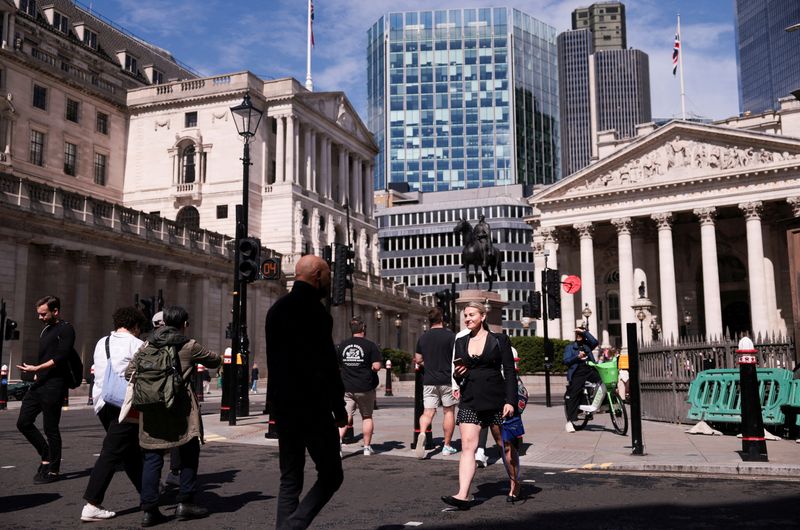LONDON, Nov 29 (Reuters) – Non-bank monetary establishments resembling hedge funds stay susceptible to a sudden monetary shock and wouldn’t all have the ability to entry the funding they would want in such a disaster, the Financial institution of England mentioned on Friday.
Asserting the outcomes of its first system-wide take a look at of Britain’s monetary corporations, the BoE mentioned the rising non-bank monetary sector has elevated its resilience.
However its reliance on financial institution funding in a disaster may result in “greater risks for financial stability,” it mentioned.
Not like typical stress exams which have a look at how large banks’ or different monetary corporations’ stability sheets fare throughout a disaster, the
BoE’s System-Large Exploratory Situation examined how the actions of the entire community of economic corporations, together with banks, funds, insurers and central counterparties, may amplify shocks.
The state of affairs envisaged a hypothetical state of affairs by which “a sudden crystallisation of geopolitical tensions” led to a sudden and extreme market shock.
Such a state of affairs could also be extra doubtless following the U.S. presidential election victory of Donald Trump who has repeatedly threatened to impose tariffs on international imports, that would in flip enhance commerce and political tensions with nations resembling China.
The outcomes of the BoE’s train highlighted persevering with dangers within the non-bank monetary establishments sector, with many such corporations anticipating to have the ability to rely in a disaster on so-called repo financing from banks that may be unlikely to be out there.
Non-banks wanted to satisfy some 94 billion kilos price of margin calls within the state of affairs, the BoE mentioned, forcing some gamers resembling hedge funds to promote property the place financial institution funding was not out there.
The sterling company bond market would additionally come underneath stress, the BoE mentioned, as funds trying to elevate money dumped company bonds right into a falling market, resulting in a “jump to illiquidity” with inadequate consumers.
Whereas the train was designed extra to tell corporations in regards to the dangers than to result in direct coverage motion, the BoE mentioned its conclusions supported the broader work of the worldwide regulators to raised perceive and regulate the rising non-bank sector.
Regulators worldwide have been scrutinising extra intently the non-bank sector, which now accounts for about half of the worldwide monetary system, after a number of incidents the place such corporations have wanted help in recent times.





